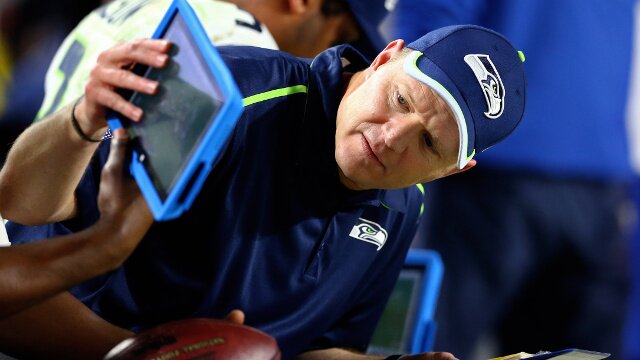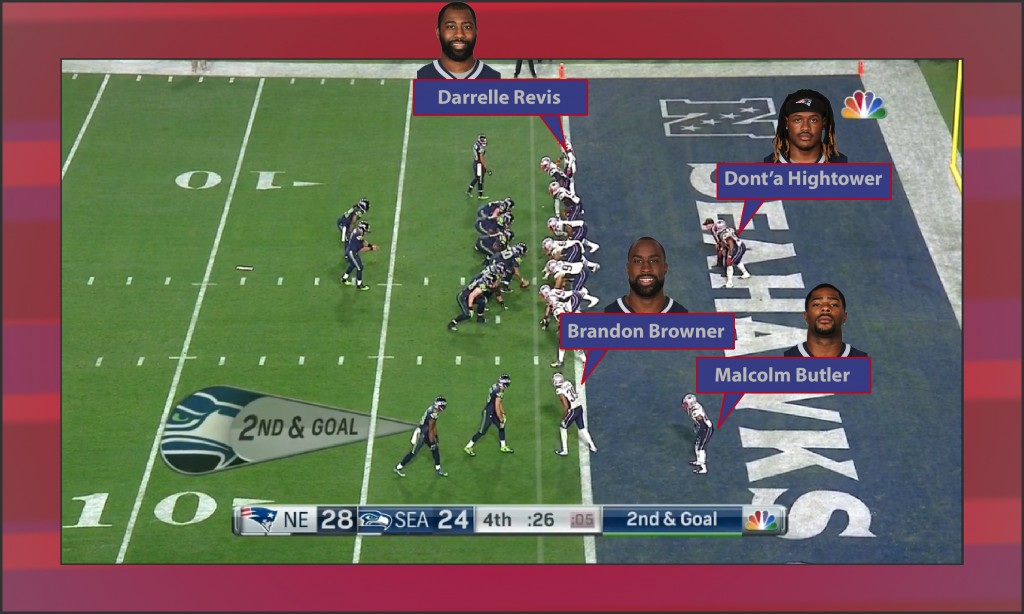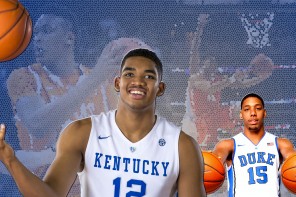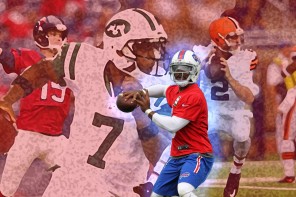Hindsight is 20/20. It’s easy to say that a play call that ended in a Super Bowl losing interception is stupid after the fact. It’s not easy to say that before the play happens. With 26 seconds left in the 4th quarter with a timeout down by 4 on the one-yard line Seattle decided to throw on 2nd down. Malcolm Butler intercepts Russell Wilson and the game is over. While the play ended in catastrophe Seahawks’ offensive coordinator Darrell Bevell’s play call was actually the right one.
Reason 1: The Play Call Was Not Risky

Passing from the one is not as risky as it’s being made out to be. In 108 passes this season from the one-yard line 0 were intercepted. In 212 rushes inside the one this season 2 were fumbled.
Additionally Russell Wilson has the 3rd lowest interception rate in the NFL of all quarterbacks with at least 250 passing attempts. Marshawn Lynch ranked 8th in the NFL in fumbles/carry for rushers with at least 150 attempts.
Additionally, in 2014 running plays and passing plays from the one had the exact same touchdown rate, 57.5%.
Reason 2: Less Probability of Negative Yards

During the 2014 season passing plays from the one yielded an average of .42 yards per play while running was .35.
Wilson only threw from the one-yard line once this year and it resulted in a touchdown. Marshawn Lynch had 5 carries from the one-yard line this season for -1 yards and only 1 touchdown. Lynch’s average of -.2 yards per carry from the one was the worst in the NFL for running backs with at least 4 attempts.
Reason 3: Time

In 2014 from the one-yard line the probability of a play ending with the clock running after a passing play was 3.9%. The probability of a run play ending with the clock running in 2014 was 42.5%
Seattle needed to have a chance to run 4 plays order to have the highest probability of scoring from the one. With only one time out Seattle can only have one play end with the clock running in order to have time to use all 4 downs. This means they can only run the ball once on either 2nd or 3rd down and then one more time on fourth. If Seattle runs on second down and uses their time out they would’ve had around 20 seconds left with no timeouts. By passing on second down a failed attempt would still give them a chance to have one time out on third down. Passing also gives Seattle insurance against a sack. Any failed attempt on third down with the clock still running would have resulted in the game ending or a mad scramble to get the play off in time meaning Seattle would have squandered a fourth attempt to score.
Reason 4: The Match Up Was There
After the first down run in anticipation of another run the Patriots subbed out Devin McCourty leaving only three secondary players on the field: All-Pro corner back Derrell Revis, former All-Pro corner Brandon Browner, and an undrafted rookie cornerback/safety hybrid from West Alabama named Malcolm Butler. For all Seattle knows this is their last chance to throw against this personnel. With three wide receivers in the formation each player was in man coverage. The only help in the middle was linebacker Dont’a Hightower. The play was designed to target Butler, a guy who didn’t step on the field for the first 32 plays of the game and who had 0 career interceptions and only 3 career passes defended.
Unfortunately for Darrell Bevel, Butler made the play of his life and Bevell’s call will go down in infamy as one of the worst of all time. Even though we all now know that it was actually the right call.
-Special Thanks to @Cscondi for research help-






